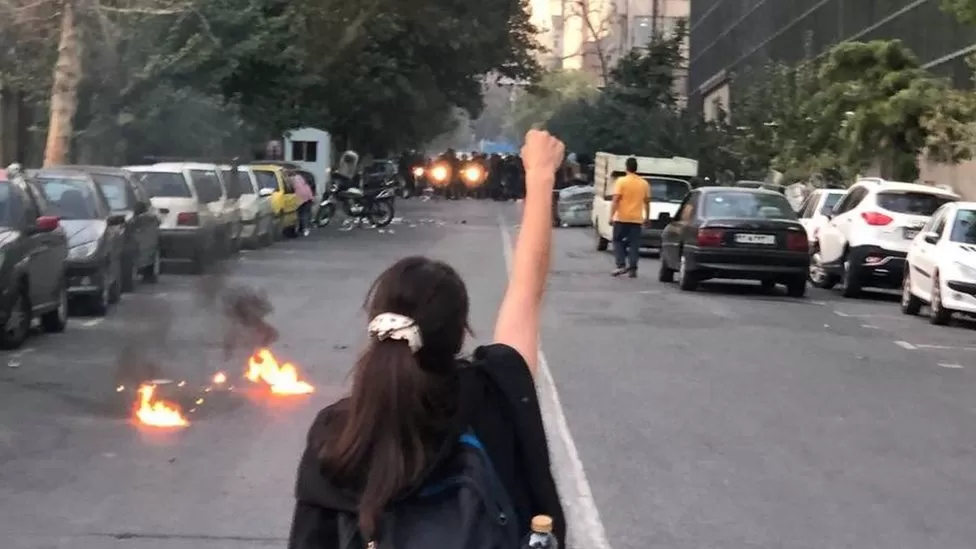Written by Clara Popp
On Father’s Day 2017, eight people gathered around a table; beneath a tree to protect us from the ridiculously hot day. It was a reunion between my family and the people we’d brought into our lives almost seven months earlier. It was an idyllic sort of day, sweltering and dry. We drank lemonade while enjoying our picnic. Two children ran around the lawn playing with an old swing and climbing trees. Amidst this slice of suburban America were five people who’d been through unimaginable horrors.
In the wake of the 2016 United States Presidential election, my family was devastated and looked for ways we could make a difference. Answering a plea on a Facebook activist page brought five people into our home fresh off the plane from a refugee camp in Israel. They needed a place to stay until their new apartment was ready.
They had all fled from oppression in Eritrea, a place I’d heard of but certainly couldn’t have placed on a map. As a country, it doesn’t get as much media coverage as others, but it shares its borders with Sudan and Ethiopia and is suffering a dictatorship. The 2017 Freedom House Report listed it as ‘Not Free’ in terms of press freedom, placing it alongside better-known countries like Syria and North Korea.
I wish the refugees – Kifan, Ariam, Selam, Awet, and Birhan – could tell their own story. I wish it was them writing this article rather than me. But, at the moment, they aren’t in a position where they can do that. And so I am trying. Kifan turned to me, that Father’s day beneath the tree, and, upon discovering that I like to write, he asked if I would tell their story, use my voice to amplify theirs, because they are desperate that people know that refugees are just humans, not criminals to fear, just people who need help.
Spending time with them I am often reminded of this quote by acclaimed Nigerian author Chimamanda Ngozi Adichie: ‘We live in a world where we so often quote figures of the number of the dead in Iraq, in Afghanistan, in Congo, until they become just that: figures. Each time I read these news articles, I find myself thinking – what do they dream about in Congo? How do they fall in love in Afghanistan? How do they resolve family quarrels in Iraq? What do they like to eat?’
Now, I don’t know how they fell in love, but I can tell you that Ariam, who is studying for a high school diploma, can speak six languages – and laughed when I told him I can barely speak one – that his favorite food is rice, that he and Selam loved swimming in our neighborhood pool, and that they passed lots of time in Israel swimming in the sea. I know that they all have families that they wish they were with. I can tell you that they have been through so much, things that sometimes they find too difficult to talk about, but it is just as important to know that they can still laugh and smile, or that when I broke my foot they would ask after me every time they saw me, as if one bruised limb compared to a lifetime of displacement and pain.
It’s important to know that Kifan’s nephew was kidnapped and tortured twice trying to cut through Sudan to escape his home, that his other nephew landed in England, a teenager and alone.And it is just as important to see his child watching funny YouTube videos on a mobile phone, or to see him fall on his bum off a zipline and still get right back on. Their suffering should not eclipse their living.
And it is just as important to see his child watching funny YouTube videos on a mobile phone, or to see him fall on his bum off a zipline and still get right back on. Their suffering should not eclipse their living.
These aren’t radical notions or surprising facts, but they’re important. Nobody can deny that refugees desperately need our help, our compassion, but it is so easy to see them as distant, shadowy figures, as people suffering elsewhere, in a land so foreign to American and English experiences that it doesn’t seem real. People pity them, but they become nothing but numbers or pixelated faces on a TV screen.
That can’t continue to happen.
That’s why I encourage you all to get involved with helping the refugees in your country. Hearing stories and experiences from people, face to face, is a visceral thing, and it can’t be recreated in just one article. Look up ways to get involved. In the UK there are charities such as Refugee Action and Refugee Council. In America there is the Refugee Council USA. The International Rescue Committee’s scope is worldwide humanitarian crises. Alternatively, you can look through activist message boards, which is where we found our chance to help, and search out opportunities that are local and specific to your area.
Next time some alt-right Twitter account claims that I ‘wouldn’t like refugees much if they moved in next door’, I can say that I would, that I do, and that I am forever grateful for the chance I have had to get to know them. And hopefully, someday soon, so will you.
*Names have been changed to protect identities.



